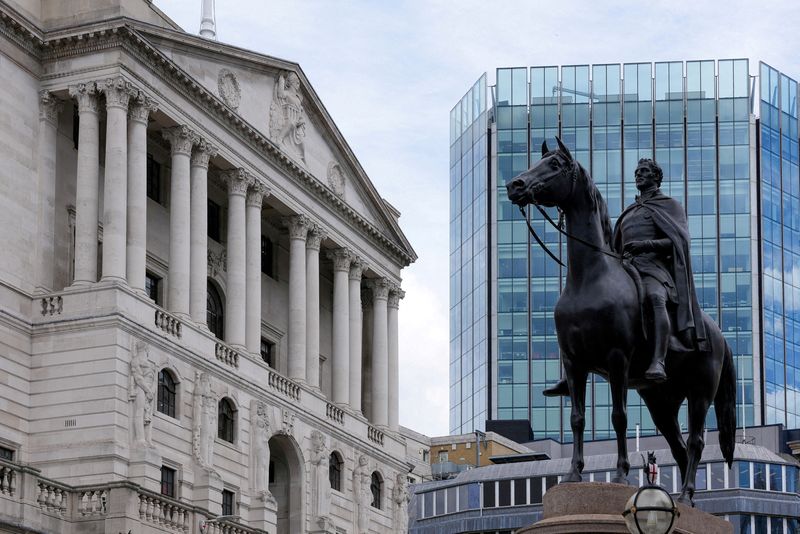By William Schomberg and Andy Bruce
LONDON (Reuters) - Bank of England Deputy Governor Ben Broadbent told investors on Thursday that the big increases in interest rates they had priced in on the back of Prime Minister Liz Truss's fiscal plans would deliver a "pretty material" hit to the economy.
In a speech, Broadbent said it was now unclear how much the Truss government's energy price cap plan would add to inflation pressure in the medium term after the scheme was drastically shortened by new finance minister Jeremy Hunt.
"The MPC (Monetary Policy Committee) is likely to respond relatively promptly to news about fiscal policy," Broadbent said in the speech delivered at Imperial College in London.
"Whether official interest rates have to rise by quite as much as currently priced in financial markets remains to be seen," he said.
Despite falling in recent days, the expectations financial markets for the BoE's Bank Rate to peak at about 5.25% was "by some distance the largest rise in market interest rates between MPC forecasts since the Committee was founded," Broadbent said.
"If Bank Rate really were to reach 5.25%, given reasonable policy multipliers, the cumulative impact on GDP of the entire hiking cycle would be just under 5% - of which only around one quarter has already come through," he said.
"It would imply a pretty material hit to demand over the next couple of years."
Investors further reined in their expectations of a full percentage-point interest rate increase by the BoE next month and British government bond future prices rose as Broadbent spoke.
Rate futures put a 17% chance on a 100 basis-point increase on Nov. 3, down from 25% earlier on Thursday. A whole percentage-point rate hike was seen as a near certainty before Truss was forced to backtrack on her unfunded tax cut plans.
Broadbent said in his speech that if government support mitigates the effect of inflation on households - as it is doing with its cap on energy prices - there was a bigger job "at the margin" for monetary policy to do.
But there was now uncertainty about the scale of the plan which finance minister Hunt has said will run for six months, not two years as originally planned by Truss, although targeted support would continue after that.
"We are unlikely to know for a while precisely the form that will take," Broadbent said.

He sounded doubtful on whether Britain could engineer a "soft-landing" - a U.S. term for bringing inflation back to target without significantly damaging the real economy.
"I don't want to say whether it's a soft landing, but here we've got this huge extra hit to real incomes that the U.S. doesn't have," Broadbent said.